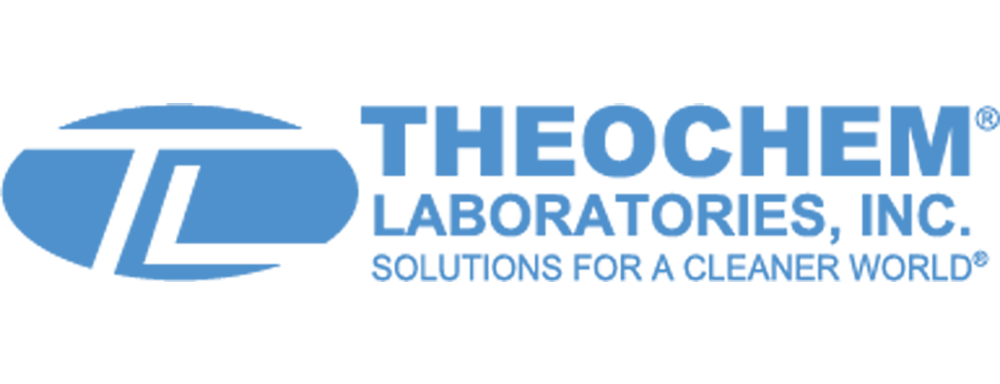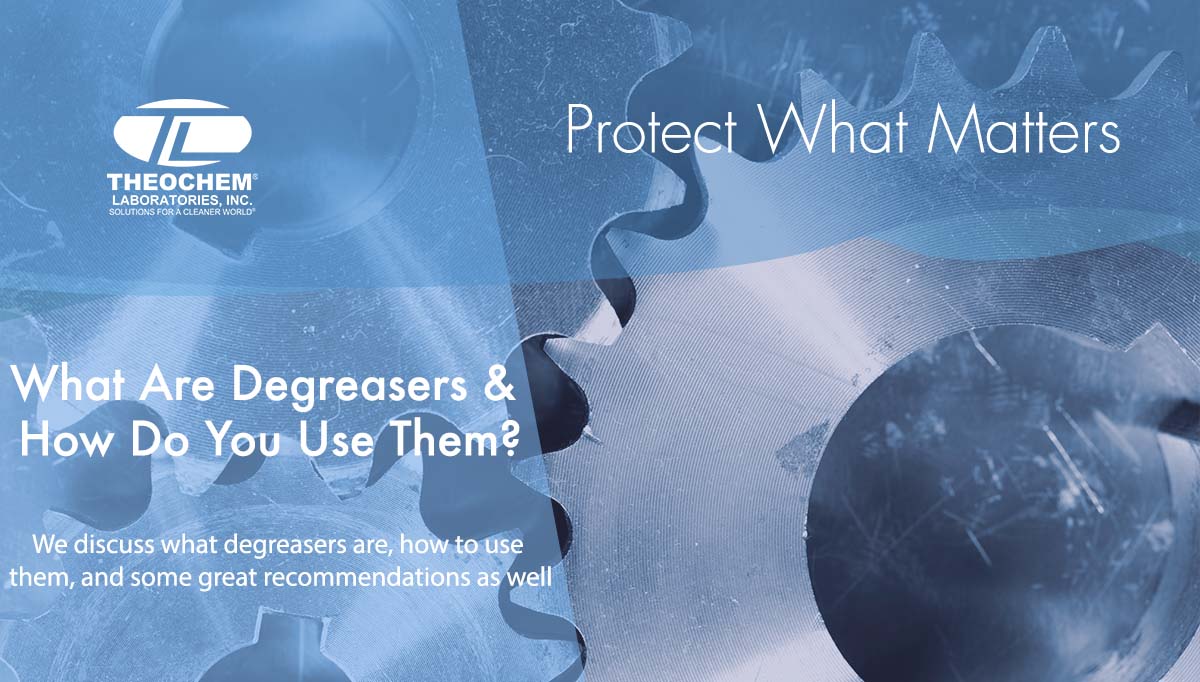With keeping your surfaces clean now more than ever, you may have stumbled upon cleaning solutions out there on the market today such as cleaners, solvents, disinfectants, sanitizers, and more. Somewhere during your search, you may have happened to see degreasers out there and may not be as familiar with this type of cleaner as you may be with the ones listed above. In this week’s blog, we will dive into what degreasers are, what distinguishes them from other cleaners, how to safely use them, and some fantastic degreaser recommendations as well so you can get to work on some of those long-overdue chores you’ve been meaning to get to.
What Are Degreasers?
A degreaser is a specific type of cleaner that is formulated to eliminate grease, wax, abrasive dust, oils, resin, soils, carbon, dye, soot, scum, fingerprints, cutting fluids, and other types of contaminants found in industrial settings. Some of these industrial settings you would commonly use degreasers on include motor repair shops, metal fabrication sites, factories, airplane hangars, production lines, and essentially any environment that houses heavy-duty machinery equipment. The prime objective for degreasers is to remove the grease or other impediments on the machinery quickly while avoiding as much scrubbing as possible.
Degreasers remove contaminants such as oil, dirt, dust, and more in order to prevent a number of future problems signs the line. If left unattended, you could encounter such issues as slipping hazards, overheating, corrosion, and a host of other issues as well. Degreasing is a required step for certain processes too such as painting and plating.
What Distinguishes Degreasers From Other Cleaners?
You may be asking yourself,” Why can’t I use an all-purpose cleaner, sanitizer, contact cleaner, or other cleaning solution instead of a degreaser?”. The answer is simple, cleaner degreasers and industrial-strength degreasers are specifically formulated to clean these impediments that a stronger cleaner wouldn’t be as successful in cleaning. Other cleaners may remove contamination from electrical contacts but fail to remove surface contacts. Sanitizers and disinfectants work phenomenally well at killing germs, bacteria, viruses, and more. However, they do not perform well when having to eliminate a thick substance such as oil, grease, and other hefty obstructions.
Cleaner degreasers can clean grease, oil, and other contaminants on equipment such as:
- Motors
- Transformers
- Electronics and Electrical Equipment
- Hydraulic Assemblies
- Metal and Fiber Optic Splices
- Programmable Logic Controllers (PLCs)
Industrial-strength degreasers are traditionally used to remove tar, grease, oil, grime, and asphalt on equipment such as:
- Bearings, Chains, and Cables
- Pulleys and Gear Drives
- Generators and Compressors
- Electrical Motors and Equipment
- Brakes, Springs, and Flywheels
How to Safely Use Degreasers
Degreasing methods come in a variety of forms such as aerosols, pre-saturated wipes, swabs, trigger sprays, and liquids. For the sake of this article, we will be talking specifically about liquids. When cleaning the desired part with a liquid degreaser, simply place the part in a bucket or tray filled with the degreaser. May also be used in manual and pressure washing equipment. Hot water will reduce cleaning time and improve performance. Released soil should be removed by rinsing with clean water or wiping with a clean cloth or sponge.
Degreaser Recommendations
Now that you have a proper understanding of what degreasers are and also know the types of jobs they excel at, which degreasers should you use? Lucky for you, Theochem Laboratories has just introduced enhanced formulations of the following four degreasers. These degreasers have been time-tested and trusted by our loyal customers for the past 60 years. Each of these degreasers has been made with bio-based and readily biodegradable materials and can be used manually or in the pressure washing equipment.
T-5 Purple Super Heavy Duty Concentrate: Beginning with the product that started it all for Theochem is our T-5 Purple Super Heavy Duty Concentrate. This heavy-duty butyl cleaner performs wonderfully as a wax stripper and degreaser while removing wax, resin, grease, oil, carbon, dye, soot, scum, gum, and ink. Lastly, this non-flammable product leaves behind a wonderfully pleasant fragrance after a completed job.
T-5 Green Super Heavy Duty Concentrate: Next up is T-5 Green which just like its brother T-5 Purple, works exceptionally well as a wax stripper and degreaser while also eliminating wax, resin, grease, oil, carbon, dye, soot, scum, gum, and ink from desired surfaces. You can use this butyl cleaner on virtually all hard, non-porous surfaces. T-5 Green is also non-flammable and leaves behind a pleasant citrus fragrance.
T-15 Super Concentrated Heavy Duty Degreaser: This super-concentrated, heavy-duty butyl degreaser was designed for the toughest industrial cleaning tasks. T-15 can be used on any hard surface that is not damaged by water. May be used in manual and pressure washing equipment. T-15 removes the toughest wax, resin, grease, and other contaminants while leaving behind a pleasant sassafras fragrance. When using T-15, make sure to use less water or soak longer for heavily soiled surfaces.
Clean-All Fast-Acting All Purpose Concentrate: Our final recommendation is Clean-All which removes just like the other recommendations above removes wax, grease, carbon, soot, gum, resin, oil, dye, scum, and ink. This all-purpose cleaner can be used on any hard surface that is not damaged by water. Hot water will reduce cleaning time and improve performance. Released soil should be removed by rinsing with clean water or wiping with a clean cloth or sponge.
If you didn’t know much or anything about degreasers, now you do! If you have industrial equipment that desperately needs some proper cleaning and you didn’t know the proper solution to eradicate that gunk off your machinery, you now have the answer. We hope this article has given you the proper insight to wisely choose your degreasing solutions for those heavy-duty jobs!


